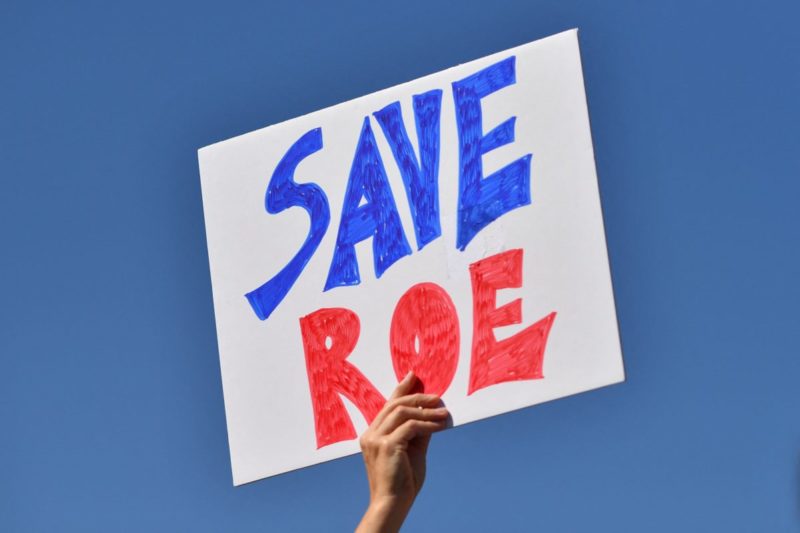5 Things to Know About the Case That Could Kill ‘Roe v. Wade’
The Supreme Court will hear arguments over Mississippi's 15-week ban, which has the potential to undo Roe v. Wade and devastate abortion access.

For more on Dobbs v. Jackson Women’s Health Organization, check out our special report.
On December 1, the Supreme Court will hear arguments in Dobbs v. Jackson Women’s Health Organization, a case involving a Mississippi law that bans abortion at 15 weeks. The law is currently blocked, after every court that has considered the ban, including the conservative Fifth Circuit Court of Appeals, declared it unconstitutional.
Dobbs v. Jackson Women’s Health is likely the big abortion case on the Court’s docket this year. This remains true even after the Court decided to let Texas SB 8, which bans abortion after cardiac activity is detected around six weeks, take effect a few months ago. Should the Court allow Mississippi’s 15-week ban to take effect, such a ruling has the potential to devastate abortion access and undo Roe v. Wade.
Here are five key things you should know about the case.
The law in question
Dobbs v. Jackson Women’s Health is arguably the most significant abortion case in decades. As Rewire News Group Executive Editor Jessica Mason Pieklo put it, “The fate of abortion rights and access for millions of people in this country could end up being decided by nine unelected justices.” And while oral arguments will be livestreamed, the justices will decide behind closed doors, and they can take up to a year to rule.
At issue in the case is a gestational ban, which outlaws abortion at a specific point in pregnancy—in this case, 15 weeks’ gestation.
Why 15 weeks, you might be asking? Well, even the lawmakers who passed the laws don’t know. It’s an arbitrary marker—it has nothing to do with responsible practice of medicine and everything to do with exploiting and politicizing perceived moral discomfort around later abortion.
Impact on other states
If the Supreme Court puts its stamp of approval on Mississippi’s 15-week ban, it means many more patients in Mississippi will be forced to travel out of state for care. So will patients in neighboring states like Georgia and Alabama. Pregnant people are already forced to cross state lines to access care, thanks to existing restrictions—which will likely tighten if the Court undermines the abortion precedent in Dobbs v. Jackson Women’s Health, forcing pregnant people to travel even farther.
Susan Rinkunas reported for Rewire News Group this year about the case’s potential impact on other states: Louisiana’s 15-week abortion ban is tied to the outcome of Jackson Women’s Health, which means if the Court upholds the Mississippi ban, the Louisiana law could go into effect. Meanwhile, clinics in Florida, a state considered an abortion safe haven right now, are bracing for an influx of patients.
No compromise on abortion rights
With the Supreme Court also hearing challenges to Texas SB 8’s enforcement mechanism, some coverage has compared the two abortion bans, framing a six-week ban as more “extreme” than a 15-week one. But it’s not that simple—and it’s important to make clear that the 15-week ban at stake in Dobbs v. Jackson Women’s Health is in no way a compromise on abortion rights. It is not a middle ground or a more reasonable alternative to a six-week ban like Texas SB 8.
If the Court allows a 15-week abortion ban to stand, the floodgates would open. That’s because it all comes down to the constitutional principles at stake—the precedent that abortion restrictions cannot be an undue burden on the right to choose abortion, and the precedent that prevents states from banning abortion before fetal viability.
What’s on the line
The case is about a 15-week abortion ban in Mississipi, but what’s really at stake is the fate of Roe v. Wade, and thus the future of abortion access in the country. Under the joint precedent set by Roe v. Wade and Planned Parenthood v. Casey, states cannot ban pre-viability abortions and they cannot enact any abortion restrictions that present an undue burden on access.
Both these critical stopgaps are on the chopping block with Dobbs v. Jackson Women’s Health. A decision by the Court undercutting Roe and Casey by allowing the Mississippi ban to take effect would open the door to more draconian bans like Texas SB 8 to stay in effect as well.
What happens if advocates win
What are the odds we’ll have a win for abortion rights at the Supreme Court next year? That’s a trick question, if we’re being honest.
There’s a conservative supermajority on the bench, and a number of the justices are openly hostile to abortion access. The very fact that the Court agreed to hear this case—and followed it up by allowing SB 8 to take effect—signals an openness to weakening the abortion precedent.
In short: There’s really no way for abortion advocates to “win” at the Supreme Court with Dobbs v. Jackson Women’s Health.
But what happens if the Court sides with the Jackson Women’s Health Organization and finds the 15-week ban unconstitutional? Just as a loss would have ripple effects that extend beyond Mississippi, so would a win.
A “win” for abortion rights advocates would mean holding the line on abortion rights and access. As the right prepares for its next attack on access, advocates would have a sort of stopgap, knowing that no matter what conservatives come up with next, a 15-week ban likely won’t survive legal challenges.
A ruling against the 15-week ban could also mean good things for the vast abortion care desert that stretches west from Florida to New Mexico and north to Virginia. It would overturn laws like SB 8, and, despite not being nearly enough to ensure access for all, that would protect countless providers and patients nationwide.
